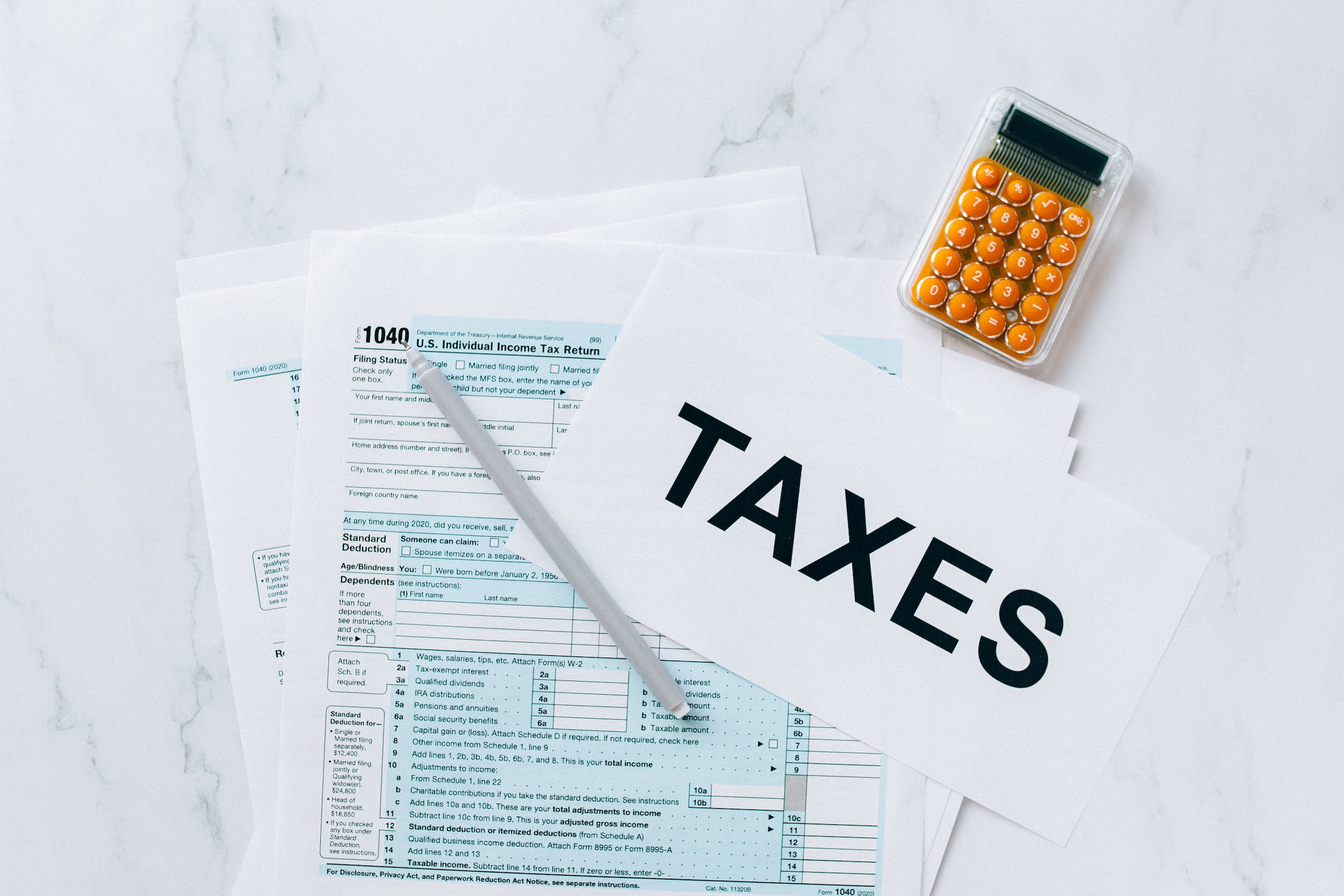What Freelance Writers Need to Know About Saving for Retirement
What I learned about IRAs, SEPs and 401ks that could save you hundreds of thousands of dollars in taxes (or more)
Simplified 
As a freelance copywriter, I’ve enjoyed the freedom of being self-employed and controlling my income, to some degree. But unlike most of my friends, who work for employers, I’ve always known that funding my retirement was my burden to carry alone.
There was no 401k, pension plan or other retirement vehicle funded by my employer. It was going to be all me. So I spoke with a financial planner early on in my career and followed her advice to fund my IRA (Individual Retirement Account) and later a SEP (Simplified Employee Pension, a pension plan for self-employed folks) every year.
But that advice was given to me decades ago. I recently learned information that prompted me to revise how I followed that advice. My financial planner wasn’t wrong. It’s just that the laws and retirement investment vehicles have changed. While there’s still merit to being diligent about saving for retirement from the moment you start earning, the method needs an update for the times.
Here’s the Rub
Roth IRAs are currently the best investment vehicle for saving retirement funds. You pay taxes on the money you invest, but all future earnings are tax free. When retirement is decades away, those tax-free savings really add up. If you’ve already begun investing in Roths as your primary investment vehicle, then this article probably isn’t for you. You’re on a good path.
But Roths didn’t exist when I was in my 20s and just beginning to set up my investment plans. The primary vehicle back then was a traditional (as it’s now called) IRA. They’re still around. Unlike a Roth IRA, you receive a tax benefit in the year when you make the investment. However, when you reach retirement age and begin withdrawing your IRA funds, you must pay taxes on both the principal and all earnings, at the current tax rates. Ouch!
The same applies when you withdraw money from your SEP or 401k. You must pay taxes: not just on the money you invested but also any returns that investment made.
For the tax year 2024, the federal income tax brackets range from 10% to 37%. And, unless you’re already at retirement age, you can expect those brackets to be higher by the time you get to that stage; taxes rarely go down.
RMDs Deplete Your Retirement Savings
At a certain age, withdrawals from your traditional IRA, SEP or 401k are not optional. You cannot keep retirement funds in your account indefinitely. The government mandates Required Minimum Distributions (RMDs), which are the minimum amounts you must withdraw from your retirement accounts each year. After all, they want their money too.
You generally must start taking withdrawals from your traditional IRA, SEP and 401k when you reach age 73. (Note that the age to start taking RMDs jumps from 73 to 75 beginning in 2033). This rule does not apply to Roth IRAs. You’re not obligated to take RMDs. You have full control over how and when you withdraw — or don’t withdraw — funds from your Roth accounts.
How RMDs Are Calculated
The RMD amount you must withdraw each year is based on your age and the total amount of holdings in your IRA, SEP and 401K accounts. If you have significant retirement savings, the RMD could be quite large. In fact, many people who have had only modest earnings throughout their life but were diligent about saving and invested well will find they’re “IRA millionaires.”
Failure to withdraw that required amount results in a 50% penalty to the IRS, so don’t even think about taking that step. And if you’re wondering at what age RMDs stop; they don’t. They continue indefinitely. You have to keep making withdrawals even if you don’t need the cash.
Furthermore, the government obligates you to take the RMDs each year whether you need the money or not and whether the investments are up or down at that point in time.
For example, if you have your money invested in the stock market and the market is having a down year, you still need to take the RMD, even though you might prefer to leave the money in and wait for the market to recover. And, once again, when you withdraw the RMD, you must pay taxes on the full amount, (principle and growth).

Deferred taxes means you owe the government money. But there are ways to minimize that burden.
RMDs Can Result in Greater Taxes on Your Social Security Payments
The tax problem created by RMDs gets even more costly. Higher taxable income may negatively impact Social Security. When you receive Social Security payments, they will be taxed, and the extra income you receive as an RMD could substantially bump up the tax rate you pay.
RMDs Also Inflate Your Medicare Premiums
If you’re eligible for Medicare (age 65+), your Medicare premiums will be determined by your income, including that annual RMD. If you are what is considered a “higher-income beneficiary,” you pay more for Medicare Part B, the health-insurance portion of Medicare. (Most enrollees don’t pay for Medicare Part A, which covers hospitalization.)
Roth Conversions Could Mean Big Savings Over Time
Here’s the good news. You can avoid the potentially costly consequences of saving in IRAs, SEPs and 401ks by taking action now. You simply convert them to Roth IRAs, so that you avoid RMDs. The actual process of doing the conversion is easy. You call or provide written instructions to wherever the accounts are being held. It shouldn’t take more than a few minutes, and the account holder (bank, mutual fund, stock brokerage, etc.) can guide you through the process.
But you will have to settle up with the IRS. In other words, you’ll have to pay any taxes that are owed on that money, which up until that point was considered “tax deferred.” Chances are the place where you have your accounts, will automatically deduct the taxes and send them to the IRS for you. When the transaction is complete, the money that ends up in your Roth IRA account will be worth less at first than what it was worth in the traditional IRA, SEP or 401K , but you’ll likely make out much better in the long run. Keep reading and you’ll see why.

Save more of your Benjamins for retirement by planning ahead for your tax obligations.
Why It Makes Sense to Pay Taxes Now vs. Later
Why opt to do the conversion and pay taxes now when you’re legally allowed to continue deferring them? Here are 6 solid benefits:
1. Significant savings on investment growth – When you pre-pay those taxes today, you pay on the principle and growth to date. Everything that investment earns in the future is now able to be withdrawn for free. If you’ve got 5, 10, 20 or 30 years to go before retirement, think how much growth that might be – thousands of dollars, perhaps hundreds of thousands or more! All that money in your Roth IRA grows for free.
2. Savings on Social Security taxes – When you begin receiving Social Security payments, they will be taxed, and the extra income you receive as an RMD could significantly increase the tax rate you pay. Get rid of the RMD, and save on your taxes in retirement.
3. Savings on Medicare – When your income is high, as it could be when inflated by RMDs, you pay more for Medicare Part B. Reduce your income by eliminating RMDs, and you could reduce your Medicare premiums.
4. Pass savings on to heirs – If you pass any of your wealth to future generations, they will have to take RMDs within 10 years of your passing. And those RMDs will be taxed at their tax rate. Most likely, they’ll still be working and earning, so those taxes could be high. Get rid of RMDs and they won’t owe taxes on their inheritance. Roth IRAs allow tax-free withdrawals. Wouldn’t you prefer more of your money go to your family rather than the IRS?
5. Control your money – RMDs are mandatory. That is, you’re required by the government to take those annual distributions and pay the taxes on them. With a Roth IRA, you have full control over the money. Take it out if you want. Leave it in to keep growing if you don’t need it or if the market is down and you’d prefer to wait until it rebounds.
6. January 1, 2026 deadline – Taxes are going up as of January 1st, 2026. The new, higher rates have already been determined by Congress. Do your Roth conversion before the start of 2026, and you pay less in taxes than you will in RMDs down the road.
The Bottom Line
Whether you’re a freelance copywriter/self-employed type like me or someone working for an employer, you may want to revisit your retirement investments. If they’re the types of investments that will result in RMDs when you retire — traditional IRAs, 401ks, SEPs — then you’ll want to explore Roth conversions.
RMDs are not your friend. They’re designed to generate revenue for the government, while depleting your savings. Yes, everyone has to pay some sort of taxes, but don’t pay more than your fair share.
If you have the forward-looking financial discipline to convert your traditional IRA, 401k or SEP into a Roth IRA, you can greatly limit your future tax exposure, enjoy greater financial security in your senior years, and potentially pass along more wealth to your heirs.
Disclaimer: Please check with your own accountant and financial advisor to determine the best strategy for your individual situation. And, be sure to do your homework. It’s important for you to get smart about retirement saving and investing, so you have a complete understanding of all your options. After all, nobody will care more about your future financial stability than you!
* * *
Testimonial
Excellent work
Copy approval of the skincare article went very smoothly, and we don't need to make any further changes. Thank you for your excellent work!
Nozomi Araki
International Corporate Communications
Brain Center Inc.
Tokyo, Japan

